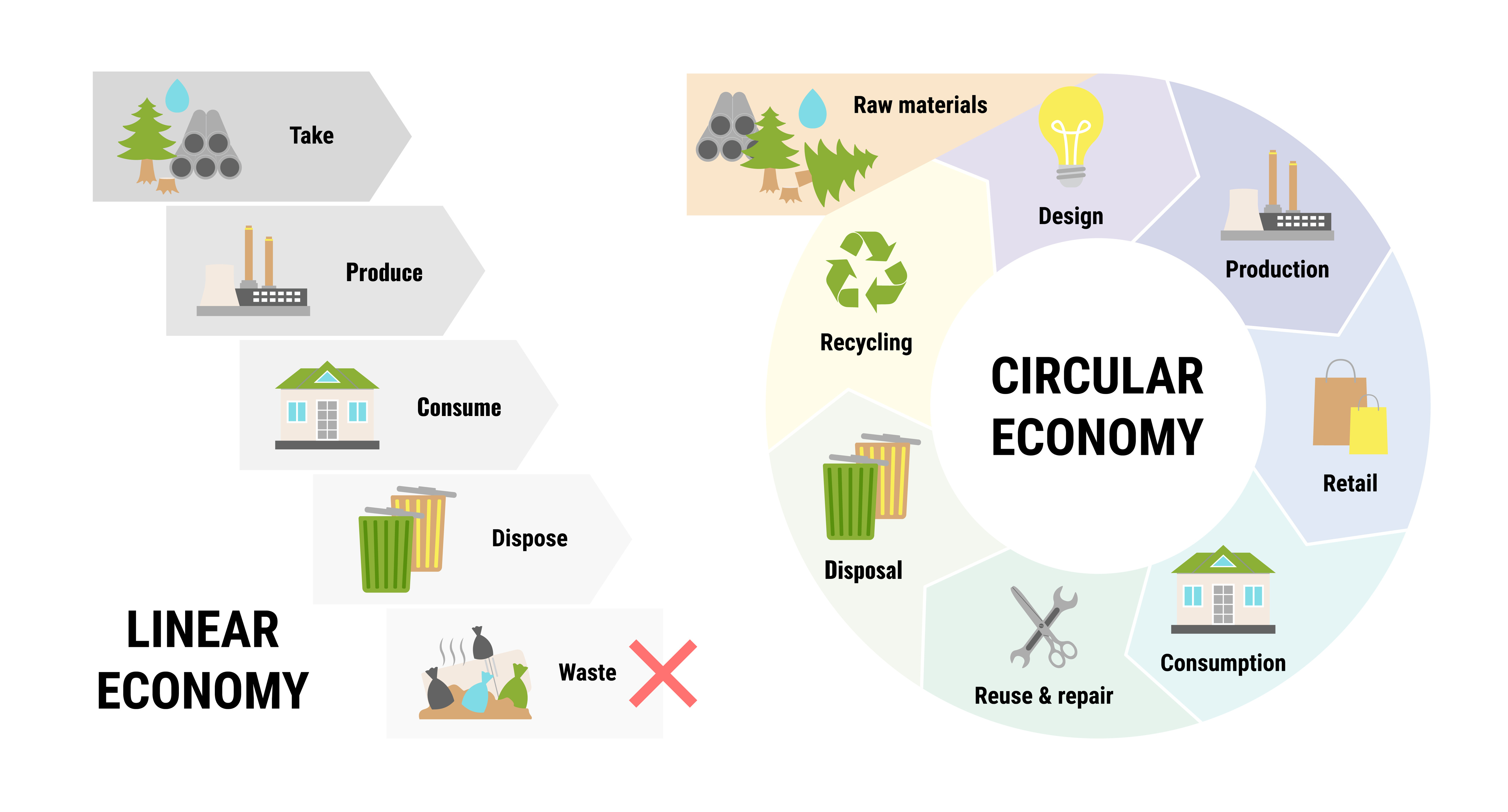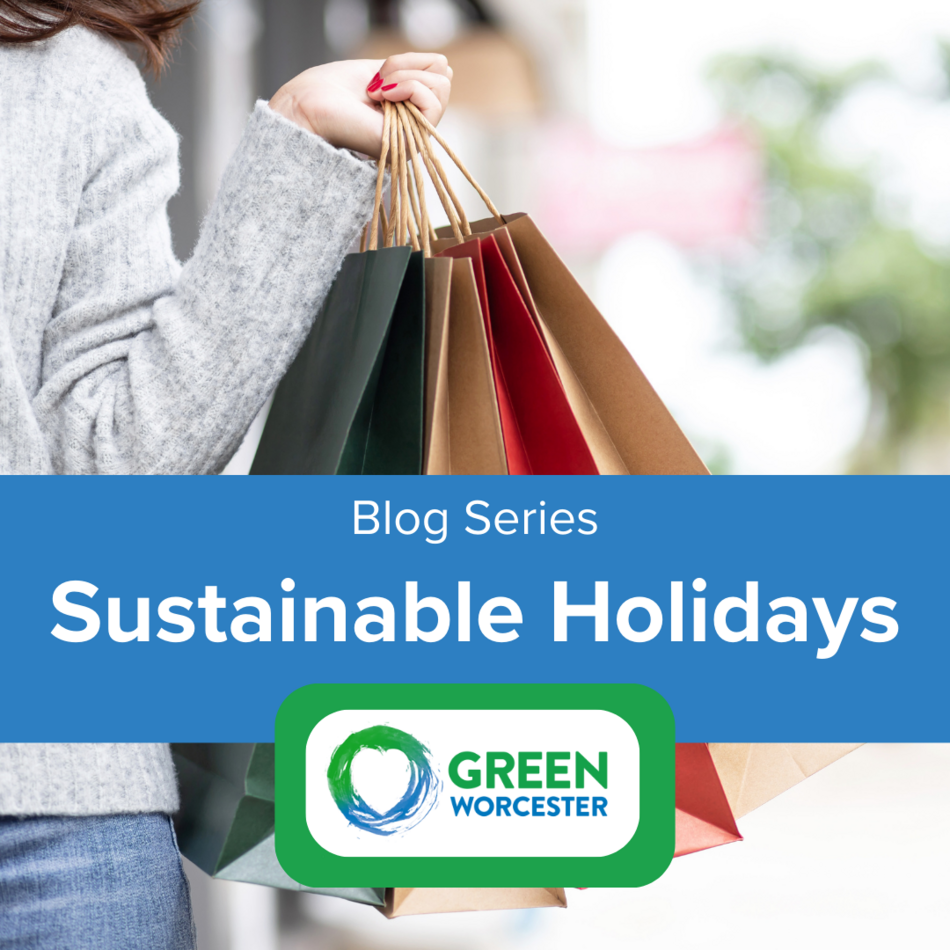The holiday season brings laughter and cheer but often brings an unfortunate side effect – tons of holiday waste. In the United States, the period between October to December is accompanied by a surge in discarded packaging, wrapping paper, food waste, and more.
An important goal of the Green Worcester Plan is to move our city towards zero waste. This blog post provides some background on holiday waste in the U.S., the principles of the circular economy, and practical tips on how to consume and shop sustainably this holiday season.
U.S. Holiday Waste: The Facts
The holiday season in the United States is notorious for generating colossal amounts of waste. According to the Environmental Protection Agency (EPA), Americans generate an additional 25% more trash between Thanksgiving and New Year's Day compared to the rest of the year.* That is around 20 million extra pounds of waste per week during the holiday season. That’d be like throwing 6,000 Boeing 747 airplanes into a landfill every week!** The primary culprits include single-use wrapping paper, packaging, and food waste.
*U.S. Environmental Protection Agency: Green Your Holiday Scene, 2016 (archive.epa.gov)
**Boeing 747 Specs: Weight, Length, Range, Wingspan & More (knaviation.net)
The Circular Economy Approach

8 Tips to Consume Sustainably This Holiday Season
Try out these sustainable practices to apply a circular economy approach to your holiday season consumption:
- Eco-Friendly Gift Wrapping: Opt for reusable options like fabric gift wraps, reusable gift bags or repurposing store paper bags and newspaper instead of using traditional wrapping paper that often can't be recycled due to its glossy finish or foil.
- Mindful Gifting: Give gifts that matter. Consider experiences, charitable donations, or homemade gifts. Support local artisans and businesses for unique, sustainable options.
- Reduce Packaging Waste: When shopping online, choose retailers who use minimal and eco-friendly packaging. Opt for consolidated shipping, which reduces the number of boxes and packing materials used.
- Zero-Waste Decorations: Decorate your home with reusable decorations like wooden ornaments or fabric garlands. You can get crafty and make your own holiday decorations from recycled materials or natural elements like pinecones and twigs. Avoid plastic or disposable decorations that will end up in a landfill.
- Holiday Leftovers: Rather than throwing away leftovers, get creative with recipes. Transform turkey into sandwiches, soups, or casseroles. Compost food scraps or donate food to local farms or pantries.
- Recycle Right: Know your local recycling guidelines and make sure you're recycling correctly. Many holiday items like cardboard boxes, glass bottles, and aluminum cans are recyclable, but items like plastic bags, plastic films, and wrapping paper are not. Use our Recyclopedia to learn what does and does not belong in curbside recycling bin.
- Donate Unused Items: After the holidays, consider donating clothes, toys, or other items you no longer need. Giving to those in need or local charities reduces waste and supports the community. The City has also partnered with Helpsy who does free at-home pickups for clothing and other textiles. Learn more here: Clothing Pickup (worcesterma.gov)
- Buy Locally: Support local businesses when shopping for holiday essentials. It reduces the carbon footprint associated with transportation and helps the local economy.
By adopting these practices, you can make a significant impact on reducing holiday waste this season! Make sure to also keep your eye out for any local holiday events and opportunities like Holiday craft fairs, pumpkin composting drives, or Christmas tree recycling pickups.
Previous Post
All About Electric Vehicles in Worcester
Next Post
Sustainable Resolutions



